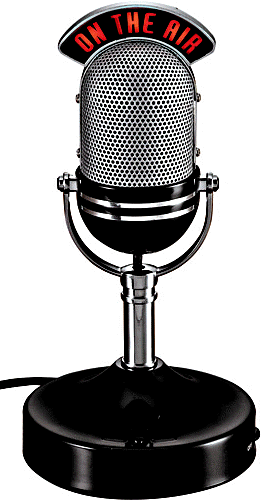Mark DeMoss has a message for his fellow evangelicals: You canít attack and demean Mormons or President Barack Obama and still consider yourself a follower of Jesus Christ.
It is impossible to abide by Paulís admonition to regard others as more important than yourself, DeMoss said Tuesday during a Brigham Young University devotional, "and also stand outside [LDS] General Conference hurling insults as [Mormons] walk by to worship with [their] fellow Latter-day Saints."
Just because the First Amendment gives everyone the right to "demonize" others with their speech, he said, "doesnít make it right."
His remarks were part of a 45-minute speech largely devoted to DeMossí advice about becoming more Christ-like. The self-deprecating PR man described the positive impact of several individual Christians, including his own father, on those around them. He urged LDS students gathered in the Marriott Center to think deeply about their goals and motives, making sure their words and deeds reflect their dependence on God and Jesus Christ.
DeMoss, who runs a faith-based public-relations firm in Atlanta, has been an unpaid adviser to Mitt Romneyís presidential campaign for the past five years. He has grown to admire the candidate and his family, and, he said in a phone interview, believes that any question about whether Mormons are Christians is "irrelevant to me in the context of choosing a president."
The so-called "Mormon problem," DeMoss said, also has diminished somewhat since Romneyís first campaign.
Thatís mainly due, he said, to several factors: the idea of a Mormon president is no longer new; Romneyís religion has been vetted in the media; Romney is a more experienced and confident candidate; and many evangelicals now are looking for a candidate who mirrors their values, not their theology.
"If you set theology aside," DeMoss said in the interview, "there is no question that Mitt Romneyís values mirror the values of most evangelicals."
DeMoss has witnessed firsthand some of the verbal attacks on the Mormon candidate and his faith. He also was "troubled by the way many people were treating Obama," he said in the speech, "ways I also didnít think were Christ-like."
Thus, in the aftermath of the 2008 campaign, DeMoss created a "civility project" with Lanny Davis, a Bill Clinton adviser, self-described liberal and a Jew.
Together they came up with a three-point pledge: "I will be civil in my public discourse and behavior; I will be respectful of others, whether or not I agree with them; I will stand against incivility where and when I see it."
In the summer of 2010, they sent the pledge to all members of Congress and sitting governors, asking them to sign it. Only three out of 585 agreed.
A huge majority of the negative reactions to his civility project, DeMoss said in the interview, "came from self-identified conservatives, Republicans or evangelicals ... [whose] emails were so vitriolic and really, really vicious and even vulgar ó it was mind-boggling and sad to me."
Most of the positive reactions came from "self-identified liberals or Democrats," he said. "That was encouraging."
DeMoss ended the project last year, but his take-away from the experience was that itís much more effective to speak to "your own crowd ideologically," he said in the interview. "I was very careful never to appear that I was lecturing the left, especially because so much of it was coming from the right."
John Morehead, director of the Western Institute for Intercultural Studies in Salt Lake City, has been trying for years to bring civility and empathy to the evangelical dialogue with Mormons.
"Unfortunately, evangelicals have a tendency to think if we donít take a harsh edge in our approach to Mormonism," he said, "that somehow we are compromising our truth."
Morehead, an evangelical, also wants his fellow believers to weigh the issues carefully, rather than worry about whether a candidateís faith will legitimize it or challenge their own religious values.
"I donít think we need to fear any candidates, Morehead said, "whether they are Mormon, or, in the future, a Muslim or pagan."
Or way in the future, he added, an atheist.

 We will be starting a Radio
Ministry on station WRMV located just outside Lynchburg Virginia. The
program will air in the mornings with a possible time slot of 7:00 a.m. and
will also be streamed on the Internet. We will keep you posted on the
time slot as it may change before the start date. We will have a 15
minute program centered around errant teachings and actions in today's
Churches. We will keep you informed with more information in the
upcoming weeks. We covet your prayers for this new adventure the Lord
has placed on our hearts.
We will be starting a Radio
Ministry on station WRMV located just outside Lynchburg Virginia. The
program will air in the mornings with a possible time slot of 7:00 a.m. and
will also be streamed on the Internet. We will keep you posted on the
time slot as it may change before the start date. We will have a 15
minute program centered around errant teachings and actions in today's
Churches. We will keep you informed with more information in the
upcoming weeks. We covet your prayers for this new adventure the Lord
has placed on our hearts.


